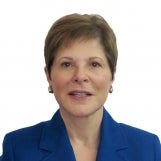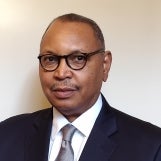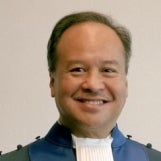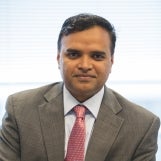Current Composition
The Tribunal is composed of seven judges, all of whom are nationals of different Member States of the Bank. The judges are not members of Bank Group staff and are appointed for fixed terms. The judges must be persons of “high moral character” and must “possess the qualifications required for appointment to high judicial office or be jurisconsults of recognized competence.” They are appointed by the Executive Directors of the Bank from a list of candidates drawn up by the President of the Bank after appropriate consultation. The essential ethical standards required of the judges in the performance of their duties are enumerated in the Code of Judicial Conduct, as adopted by the Tribunal on 25 October 2019.
President
Vice Presidents
Judges
Executive Secretary







